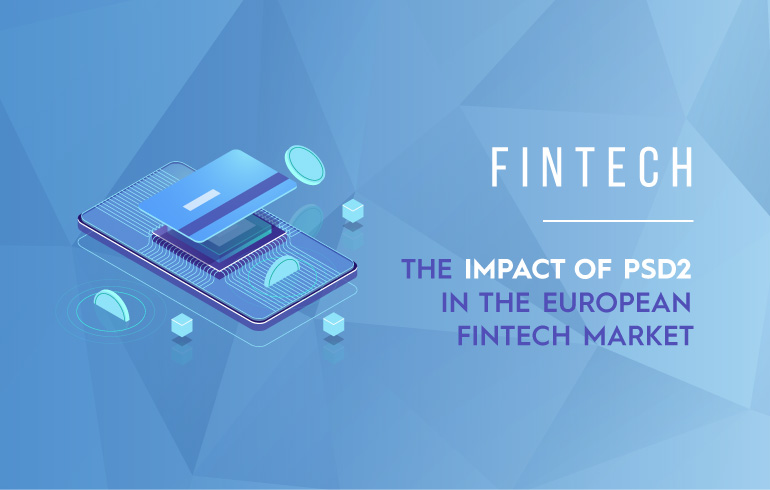
The Impact of PSD2 in the European Fintech Market
On our Fintech Trends of 2019 report, we highlighted that one of the big trends would be change brought on by new regulations, namely the Payment Services Directive 2 (PSD2). It’s a European Union Directive with the aim to contribute to the creation of a single market of payment services in Europe.
The directive
The Payment Services Directive 2 (PSD2), enables bank customers, both consumers, and businesses, to use third-party providers to manage their finances, aiming to be safe for all entities involved, efficient in time and in costs and communications infrastructure, innovative by opening opportunities for new services and competitive, pushing for an ecosystem where several providers work on.
The new players
PSD2 creates the conditions for any client (private or business) to authorize their bank to give access to their account and payment information to any other providers properly authorized by national regulations – what is called Third Party Providers (TPP).
These third party providers can be Payment Initiation Service Providers (PISP), that provide payment alternatives to credit and debit cards, Account Information Service Providers (AISP), that aggregate information, online, information from multiple accounts and offer their customers an overview of their financial position, or Account Servicing Payment Service Providers (ASPSP), that make available and hold the payment accounts of consumers.
In a nutshell, the open banking API allows these third-party providers to access consumers’ financial information (with their permission) so they can provide them with new and innovative services.
A consumer-centric market
With the implementation of PSD2, banks will no longer be competing with just other banks, but every other financial services provider. Changing the payments value chain and which business models are profitable, will result in a more consumer-centric approach to the business.
As consumers expect an increased digitalization, banks will have a harder time differentiating themselves, so they will be partnering up with startups in fintech to provide new services and better experiences, fitting customers’ convenience and expectations.
The benefits
In the end, PSD2 is a directive working towards a more open and innovative fintech market that will achieve:
- More security in electronic payments: Through the use of consumer authentication methods which comply with European standards and the accountability of payment service providers in the event of unauthorized payment transactions
- Better protection against fraud and payment incidents for both consumers and merchants: By certifying all payment service providers who may have access to consumers’ bank details
- The emergence of payment methods tailored to consumers and merchants: thanks to reduced costs in infrastructure and transactions.
The impact of it all is still to be seen – banks must comply with all the regulations of the directive by September 2019 – but bigger players are already taking notice of the impact the directive might have on the financial market: global fintech investment has doubled to €43 billion in 2018, according to DealRoom.co.
To keep getting updates about Fintech, subscribe to our newsletter for more tips, news and event details.

